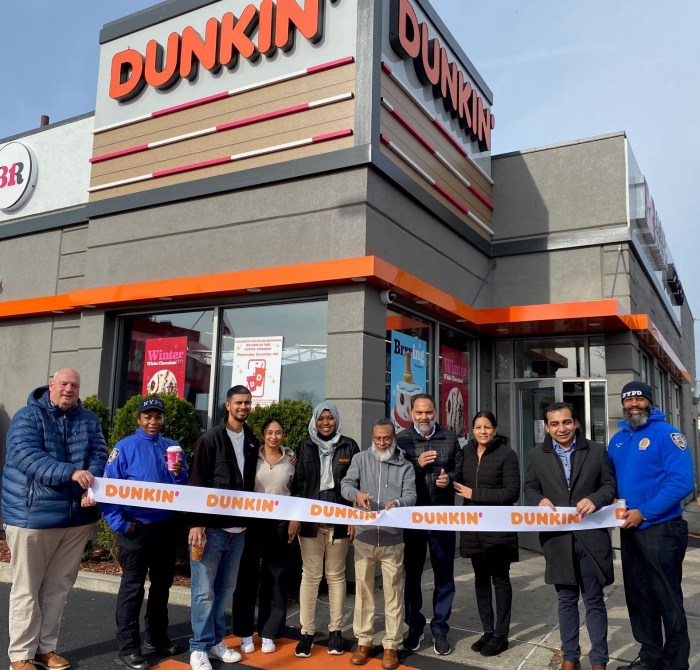We remember a time when Jamaica High School was considered one of the city’s best schools. Students were graduating, getting into college and embarking on successful careers. We are deeply proud of the school’s legacy.
However, at Jamaica, as at a number of other large high schools in the city, times have changed. We see the tragic consequences firsthand, every day. In families who choose to send their children elsewhere. In pleas for transfers out of the school. In students who drop out – the graduation rate has been below 50 percent for years.
The children of our community deserve better options, and we should demand nothing less.
The most important question to ask about a high school is whether it prepares its students for meaningful work or college. When we do not equip our students with high school diplomas, we cripple their futures.
No matter how you look at it, Jamaica is failing at this fundamental level. The school graduates fewer than half of its students – less than a third with Regents Diplomas. Other schools do far better with similar populations. Why shouldn’t the children of our community have the same opportunity as children from other communities to become doctors, architects, engineers or teachers themselves?
It is clear that Jamaica’s current model has not been working. We know that this is not a failure of the students who attend the school and it is not because the teachers and the principal are not trying their best.
It is also not because of resources – though our schools, in general, need and deserve more – which Jamaica gets on the same basis as every other school. It is the product of a complex set of causes, including the difficulty many large high schools have in effectively serving students with academic challenges.
The reasons almost don’t matter. Incredibly, only 89 eighth-graders in the entire city – out of 80,000 – listed Jamaica as their top preference in last year’s high school admissions process; just one of every 10 students zoned to the school attend it.
How can anyone argue for continuing to sentence more than 500 new freshmen each year to a school that they would not want to send their own kids to, and that nine in 10 local parents avoid at all costs?
Some have claimed that Jamaica’s underperformance is a regrettable but unavoidable consequence of the students it serves. Behind reasoning like this is the belief that if only the school enrolled “better” kids, it would not be in trouble.
Arguments like this could not be more wrong. Kids, like adults, come with every imaginable challenge, and schools have an obligation to serve them all. There is clear evidence that even students with the toughest challenges can reach higher levels of achievement than they are at Jamaica.
The Department of Education has proposed to gradually phase out Jamaica High School as it exists today and to place new, smaller schools in the building.
This is an approach the city has taken in recent years with considerable success. The new, smaller high schools have a 75 percent graduation rate – 15 points higher than the citywide average, despite the fact that these schools serve high-needs students.
In recent years, large comprehensive high schools like Evander Childs in the Bronx and Van Arsdale in Brooklyn have been transformed into campuses of outstanding academic achievement – with schools that graduate more than twice as many students as those they replaced.
How can we continue to accept a 50 percent graduation rate when we know much greater success is possible?
We should not forget that when those other schools were first phased out, there was understandable, strong and emotional resistance – just as there is now to the proposal to phase out Jamaica. It’s a natural instinct to stand up for a school where past generations of families received great educations and formed lasting connections.
Of course, no one is proposing to shut the lights and shutter the doors at the majestic campus – though this sometimes gets lost amid heated rhetoric – but rather to restructure what goes on there to more effectively serve kids. It would be wrong to let nostalgia prevent us from taking this urgent and necessary action.
Our focus must be on serving kids, not saving memories. The best way to honor the legacy of Jamaica High School, and other once-great high schools around the city, is to make sure that their classrooms once again become places where great learning takes place. That requires dramatic change, now.
Assemblymember Nettie Mayersohn represents the 27th Assembly District in Queens. Monica Corbett is a tenant leader at Pomonok Houses.


































